Here is a char array
char temp[] ={0x1f,0x2d,0x3c};
i want use the __android_log_print to print the temp ,how can convert it to "1f2d3c" and print it in one line without a for loop?
What i expected

Reality

Here is a char array
char temp[] ={0x1f,0x2d,0x3c};
i want use the __android_log_print to print the temp ,how can convert it to "1f2d3c" and print it in one line without a for loop?
What i expected

Reality

If the array is always of size 3, then:
__android_log_print(<whatever level>,"%02x%02x%02x", temp[0],temp[1],temp[2]);
Substitute your log function for printf in the printHex function. You may be able to get away with not passing the length of the array as long as it is 0 terminated and there are no 0 bytes in the middle of it so you could use strlen to find the length.
#include <stdio.h>
#include <string.h>
void printHex(char* digits, int len)
{
int i;
char* str;
str = malloc(len * 2 + 1);
memset(str, 0, len * 2 + 1);
for(i = 0; i < len; ++i)
{
char temp[3];
sprintf(temp, "%02x", digits[i]);
strcat(str, temp);
}
printf("%s\n", str);
free(str);
}
int main(void)
{
char temp[] ={0x1f,0x2d,0x3c,4,0,5,0,6,7,8};
printHex(temp, sizeof(temp));
return 0;
}